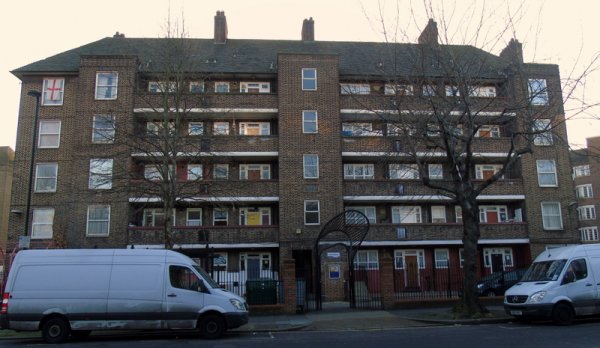Nov 5th 2018, 17:35
Blog 5th November 2018
In this week’s blog, I refer to: Local Authority Housing Finance; Budget 2018; the Borrowing Cap; Ministry for Housing, Communities & Local Government; Social Housing Green Paper; Impact Housing Association; Riverside Group; Philip Hammond MP; Rory Stewart MP; Cumberland & Westmorland Herald; National Health Service; Local Government Chronicle; and Brexit.
I am writing this blog on the train. I am on the way to London where I will be presenting at our seminar: ‘All You Want to Know about Local Authority Housing Finance’ tomorrow. As usual, this seminar is very popular, and I am looking forward to meeting the delegates.

Conference Room at the Novotel Waterloo where our seminar will be held tomorrow.
Following the budget, the government published the ‘Draft Limits on Indebtedness (Revocation) Determination 2018’ that provides for the abolition of the local authority housing ‘borrowing cap’. Much to my surprise there appear to be no catches and no ‘strings attached’. Perhaps the government has genuinely changed its view on local accountability and the role of council housing. If it has, perhaps we can hope for further progress possibly including reforms to the ‘right to buy’ and the re-visiting of the self-financing settlement.
Tomorrow is the deadline for responding to the Ministry for Housing, Communities & Local Government consultation on their Social Housing Green Paper. I have sent them the AWICS response today. In our response, I suggest that:
My observations on the role of the regulator are largely based on the example of the recent take-over of Impact Housing Association by the Riverside Group that I thought exposed weaknesses in the current approach to regulation, accountability and mergers.
I also comment that:
“It is generally agreed that government and housing providers should support home ownership. However, at present the government devotes 80% of its budget to supporting people into home ownership and only 20% on providing social and affordable rented housing and tackling homelessness. In my view the balance of funding should be shifted towards providing social and affordable rented housing and tackling homelessness and government statements that this may happen should be welcomed. If house-building could be increased to the 300,000 to 350,000 a year that the government has suggested that would benefit those who aspire to own a home as well as those who aspire to rent a social or affordable home.”
To view or download a copy of our response, please click here.

Flats on the Briant Estate in Lambeth
In my blog last week, I commented on Philip Hammond’s latest budget. In this week’s ‘Cumberland & Westmorland Herald’ my Member of Parliament, Rory Stewart MP (Conservative) also makes some interesting points on the budget as follows:
“We are spending three times as much in real terms on the National Health Service (NHS) as we were in 1990… By 2025, the NHS, which accounted for less than 10% of government expenditure in 1990 will account for 37% of all public expenditure… At the heart of this change is not party politics… it is the cost of end-of-life health care for an ever-older population. More than two thirds of babies born last year are expected to live beyond 100. And they will support themselves and others by working and paying taxes for less than fifty of those hundred years. When Lloyd George launched the old age pension, life expectancy was fifty, and there was one retired person for every twenty-working people. Today, fewer than three working people are supporting each retired person. It will soon be two.”
I think this is all very true, but what I would like to know is:
“When will politicians stop pretending that they can deliver pensions, high quality health services and high-quality adult social care to an increasing number of older people, without having an increasing budget to pay for it?”
What our political leaders should be telling us is that if we want to live to be a hundred and to work for only fifty years, we will have to pay a lot of tax or insurance during those working years. Alternatively, we will have to work for a longer proportion of our lives. I assume the reason why they don’t tell us this is that we probably wouldn’t vote for them if they did!
Jo Millar, Chief Executive of Doncaster Borough Council and President of the Society of Local Authority Chief Executives made an interesting speech at their conference last week in which she criticised the approach of central government to policy making. saying that:
"When you have policy implementation designed in a Whitehall Ivory Tower overflowing with hubris and an all pervasive centre knows best mentality, you end up with the unholy mess that is the design and implementation of universal credit."
There is an interesting piece in this week’s ‘Local Government Chronicle’ by Jon Bunn, entitled ‘Vast majority have no Brexit plan despite gloomy outlook’. The article summarises a survey of chief executives and senior managers in local government that found that 59% considered that Brexit ‘will be devastating for the community my authority serves’ and that 70% admit that their authority has no plan for how to deal with the potential consequences of Britain leaving the European Union. A majority also complained that their authority had been ‘left completely in the dark’ by Whitehall.
Councillor Judith Blake (Labour), Leader of Leeds City Council is quoted as saying that:
“I think there’s a frustration across local government that as a sector we’re not being listened to and our experience hasn’t been brought into the mix.”
The independent migration advisory committee has said that it is ‘seriously concerned’ about the potential impact of Brexit on social care and that potential restrictions on migrant workers could put the sector under ‘tremendous pressure’.
David Paine, the Acting News Editor, commented that:
“They (local authorities) should not sit around waiting for ministers and senor civil servants to get their act together. Brexit is a major issue that will have an impact on every area – its residents and its businesses.”